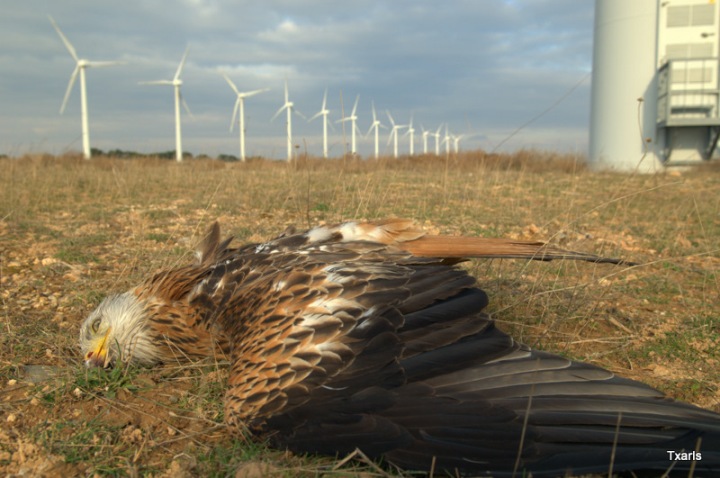A subsidiary of NextEra Energy, a leading producer of renewable energy, was fined $8 million in April after pleading guilty to criminal charges of killing more than 150 eagles at eight of its industrial wind power facilities around the country.
Federal prosecutors charged NextEra subsidiary ESI Energy with three counts of violating the 1918 Migratory Bird Treaty Act. The charges arose from the deaths of nine eagles at three utility-scale wind facilities in Wyoming and New Mexico.
In addition,, ESI Energy acknowledged responsibility for the deaths of golden and bald eagles at 50 wind facilities in eight states since 2012. Those deaths occurred in Arizona, California, Colorado, Illinois, Michigan, New Mexico, North Dakota, and Wyoming.
No Permits, No Protection
ESI was convicted for neither taking steps to protect the birds nor obtaining take permits which allow wind turbine operations to kill a specified number of eagles over a specified period without penalty.
“ESI acknowledged its turbines had killed at least 150 bald and golden eagles since 2012, across 50 of its 154 wind energy facilities,” the U.S. Department of Justice said in a statement. “And 136 of those deaths have been affirmatively determined to be attributable to the eagle being struck by a wind turbine blade.”
Prosecutors said ESI and NextEra pocketed millions in federal subsidies for wind power through the producer tax credit and gained a financial advantage over competing wind facility operators by failing to go through the process of obtaining take permits and not operating in a way to minimize eagle deaths.
NextEra said it didn’t seek permits to kill eagles because it believed they weren’t necessary when protected raptors are killed unintentionally. But court documents revealed federal officials had warned ECI eagles would be at risk if the company built wind facilities in Wyoming and repowered a wind farm in New Mexico. The company proceeded anyway.
“For more than a decade, ESI has violated (wildlife) laws, taking eagles without obtaining or even seeking the necessary permit,” said Assistant Attorney General Todd Kim of the Justice Department’s Environmental and Natural Resources Division, in a statement.
Feds Increase Eagle ‘Take Limit’
The U.S. Fish and Wildlife Service (FWS) has established a “take limit” for wind energy companies to kill bald eagles.
The FWS regularly imposes fines on oil companies and electric transmission firms for inadvertent deaths of bald eagles, while allowing wind companies to kill birds, provided they have the proper permits. As part of the Biden administration’s climate policies, the FWS’s bald eagle take limits were revised in February 2022 to allow a more than four-fold increase in the legalized slaughter of the birds.
“The take limits established a ceiling on the aggregate amount of incidental take of bald eagles FWS can authorize through permits in its Eagle Management Units (EMUs),” states an analysis of the FWS’s revised regulation by the legal firm Davis, Graham & Stubbs LLP. “In the notice, FWS announced its decision to increase take limits in four of its EMUs following a periodic review of biological data and reassessment of take limits. FWS increased the collective take limits across all four EMUs from 3,731 to 15,832.”
Where Eagles Die
Eagles are dying in vain, unmourned by self-described bird conservation groups, says Jay Lehr, Ph.D., a senior policy analyst with the International Climate Science Coalition.
“The fact that the Audubon Society and other environmental groups do not raise an objection to the slaughter of birds tells you what these groups really care about, and it’s not wildlife,” said Lehr.
In addition to wasting birds, wind power wastes resources, says Lehr.
“All wind power must be backed up 100 percent by either coal, natural gas, or nuclear, which needlessly adds to the cost of energy,” said Lehr. “The world should know that wind actually undermines a community’s electric grid because a grid has to be reliable. Wind power makes no sense in terms of physics and energy and exists only because state and federal governments, meaning the rest of us, pay half of all costs.”
Bonner R. Cohen, Ph.D. (bcohen@nationalcenter.org) is a senior fellow at the National Center for Public Policy Research and a senior policy analyst with the Committee for a Constructive Tomorrow.
